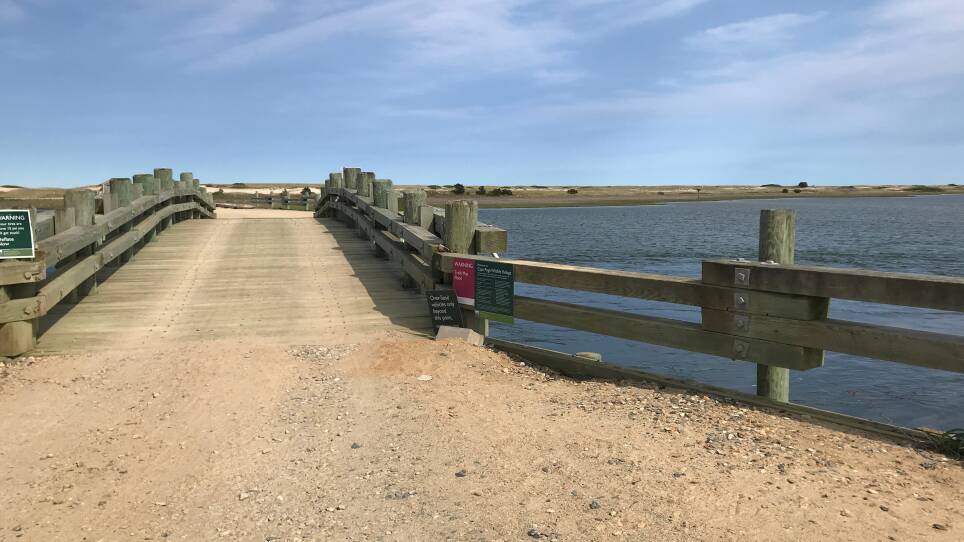It will be 50 years ago on Thursday that tragedy struck Chappaquiddick, a small island that's part of Martha’s Vineyard. The late Massachusetts Sen. Edward (Ted) Kennedy was involved in a car accident on the island on July 18, 1969 that took the life of a young woman named Mary Jo Kopechne, a former campaign aide to his brother, Robert Kennedy.
Even after half a century, interest in the accident persists.
“The Kennedy name and the Kennedy family legend are still incredibly potent,” said Bow Van Riper, research librarian at the Martha’s Vineyard Museum. "If it had been Edward Smith, not Sen. Edward Kennedy, behind that black Oldsmobile, we wouldn’t be seeing the interest in the accident 50 years on.”
In 1969, Kennedy left a party on Chappaquiddick in his Oldsmobile with Kopechne. Kennedy lost control of his car and drove off the Dyke Bridge, and the car landed upside down in the water. The senator swam ashore, but Kopechne drowned.
Kennedy left the scene and didn't report the accident until the next day. A week later, he pleaded guilty to leaving the scene of an accident and his license was suspended.
“To people beyond the Vineyard, I think the accident in 1969 certainly defines Chappaquiddick,” Van Riper said. “It's what, if they know anything about Chappaquiddick, it's that.”
Van Riper said there’s a mystique surrounding that night, one Chappaquiddick has never been able to shake.
Martha’s Vineyard is known for being a beautiful and relaxing vacation spot, but some travel to Chappaquiddick to stare off the side of the Dyke Bridge and wonder just what happened that fateful night. Some visitors come over land on four-wheel drive vehicles, but the best way to get to the tranquil island is by taking a three-minute ferry ride from Edgartown.
Ferry Captain Becca LaMarche has been operating the ferry for eight years. She said many people ride the ferry to go see the Dyke Bridge, where Kennedy's life changed and Mary Jo Kopechne’s life ended.
“It's definitely generational," LaMarche said. "It’s an older crowd that usually comes down and asks if this is where the bridge was, which it isn't. It's about three miles in. “
Chappaquiddick residents are reminded of the accident every summer day, when the tourists come.
“The sad part about it is, it's a beautiful spot, and people come out here and they don't see the beauty,” said Jack Livingston, who has lived on Chappaquiddick with his family since 1980. “They don't see the water, or they don't see the birds, they don't hear it. All they talk about is theories about what happened.”
Chappaquiddick homeowner Steve Peach said the bridge is a destination.
"When we have people visiting the island, that's the first thing they ask about — 'Where's the bridge?'" Peach said.

But Peach said he’s disturbed by the social commentary from some people.
“Some people come with a big chip on their shoulder, meaning, they’re absolutely anti-Kennedy and want to see where it happened,” Peach said. “I mean, it’s tragic and it was very sad, but I think [Kennedy] paid his price.”
Michael Kirkpatrick traveled to the island from Largo, Florida. He said he was drawn to the bridge because he knew of the tragedy.
“I have skepticism," Kirkpatrick said. "I've been in law enforcement for over 30 years. And so, a lot of what I've read just raises more questions about what's he hiding.”
The questions have never stopped — questions about the way police handled the investigation, about what Kopechne’s death meant to Kennedy's presidential aspirations, and about the ways Kopechne was depicted in the days and years after her death.
At the bridge where she died, the area around it is still beautiful, but the bridge itself is different. Guard rails are in place, so what happened 50 years ago can't happen again.
Hans Selvog owns the Edgartown bike shop, where visitors often rent bikes to peddle out and see the bridge. He tells them what it was like before.
“One of the things I like to tell them is that had there been railings on that bridge, the whole sequence of presidents would probably be different right now, just simply by there might being railings on that bridge,” he said.
Chappaquiddick resident Livingston said years after the tragedy, he saw Ted Kennedy standing next to the bridge.
“I saw Teddy out here," he said. "Maybe 10 years afterwards, just kind of walking out there by himself. So, it didn’t bother him.”
But maybe it did bother him. Maybe he visited the bridge for another reason. We'll never know.
Some people talk about placing a sign at the bridge in Kopechne's honor. If it happens, it will be another reminder of the tragedy that will probably always be associated with this little island off Martha’s Vineyard.
But Martha’s Vineyard librarian Bow Van Riper said there's value in telling the story behind the Dyke Bridge, and why what happened 50 years ago still casts a shadow over this beautiful island.
“Telling this story is a way of keeping faith with Mary Jo Kopechne and her family," he said. "And for them, by extension, all the other people who didn't get justice because somebody with more wealth and better connections got justice instead.“




